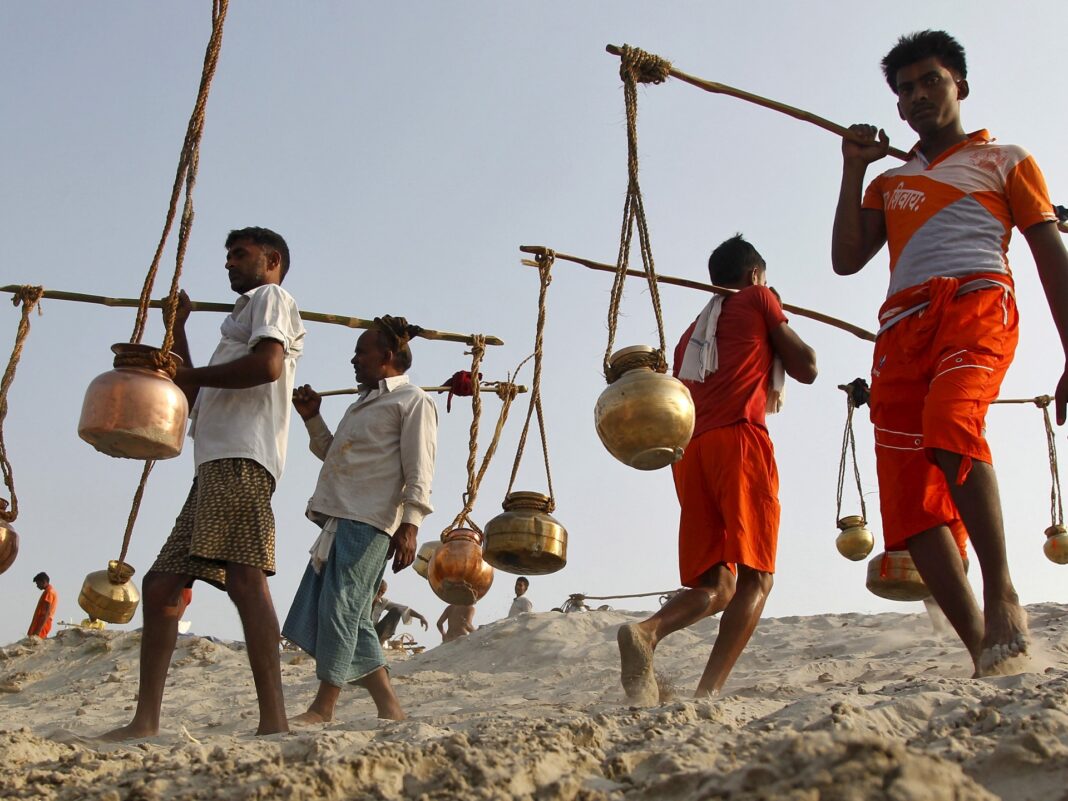Supreme Court suspends order asking restaurants and roadside carts to display owners’ names in Uttar Pradesh and Uttarakhand states.
India’s top court has ruled that restaurants cannot be forced to display the names of their owners, suspending police orders in two northern states that critics said could foment discrimination against Muslims.
Police in the two states, both ruled by Prime Minister Narendra Modi’s Bharatiya Janata Party (BJP), gave oral orders requiring restaurants and even roadside carts along a route taken each year by thousands of Hindu pilgrims to put the names of their owners on display boards.
Police said the move would help pilgrims who travel on foot to sacred sites during the holy month of Shravan, many of whom follow dietary restrictions, such as eating no meat during their journey.
But a Supreme Court bench ruled on Monday that while restaurants could be expected to state the type of food they serve, including whether it is vegetarian, they “must not be forced” to display the name and identities of owners.
The court suspended orders by the police in Uttar Pradesh and Uttarakhand states and issued a notice to them seeking their response on petitions challenging the move.
The court will take up the matter again on Friday.
More than a third of India’s 1.4 billion people are estimated to be vegetarian – the world’s largest percentage of people who don’t eat meat or eggs. Some vegetarians choose not to eat in restaurants that also serve meat and don’t rent out houses to meat-eating tenants.
The Uttar Pradesh government, which was the first to implement the rule, had said it was meant to maintain the purity of the faith of the pilgrims, known as “kanwarias”, who are devotees of the Hindu god Shiva. They trek for days or weeks at a time to pilgrimage spots along the sacred Ganges river in order to gather water to be offered at Shiva temples.
The majority of the pilgrims are young males who travel to and from temple towns via Uttar Pradesh, Uttarakhand, Madhya Pradesh, Haryana, Delhi, and Rajasthan states.
Usually, police are called in to keep the peace and there are traffic restrictions in place. However, there have been reports of violence and vandalism in recent years as huge groups of young men pass through cities, sometimes walking in the middle of the road.
Detractors, including some BJP allies who did not agree with the police order, said the move was meant to stop the pilgrims from patronising eateries owned by Muslims.
Both Uttar Pradesh and Uttarakhand have witnessed simmering sectarian tensions in the recent past, with critics accusing the two states’ BJP governments of persecuting minority Muslims.
The Jamiat Ulama-i-Hind, India’s largest socioreligious Muslim organisation, expressed concern over the order in the two states.
A few BJP allies and leaders of the opposition parties also criticised the police orders, saying they feared they would deepen the communal divide and lead to Hindus avoiding restaurants employing Muslims.
“Such orders are social crimes, which want to spoil the peaceful atmosphere of harmony,” opposition Samajwadi Party’s chief Akhilesh Yadav had said in a post on X, criticising the police moves.







